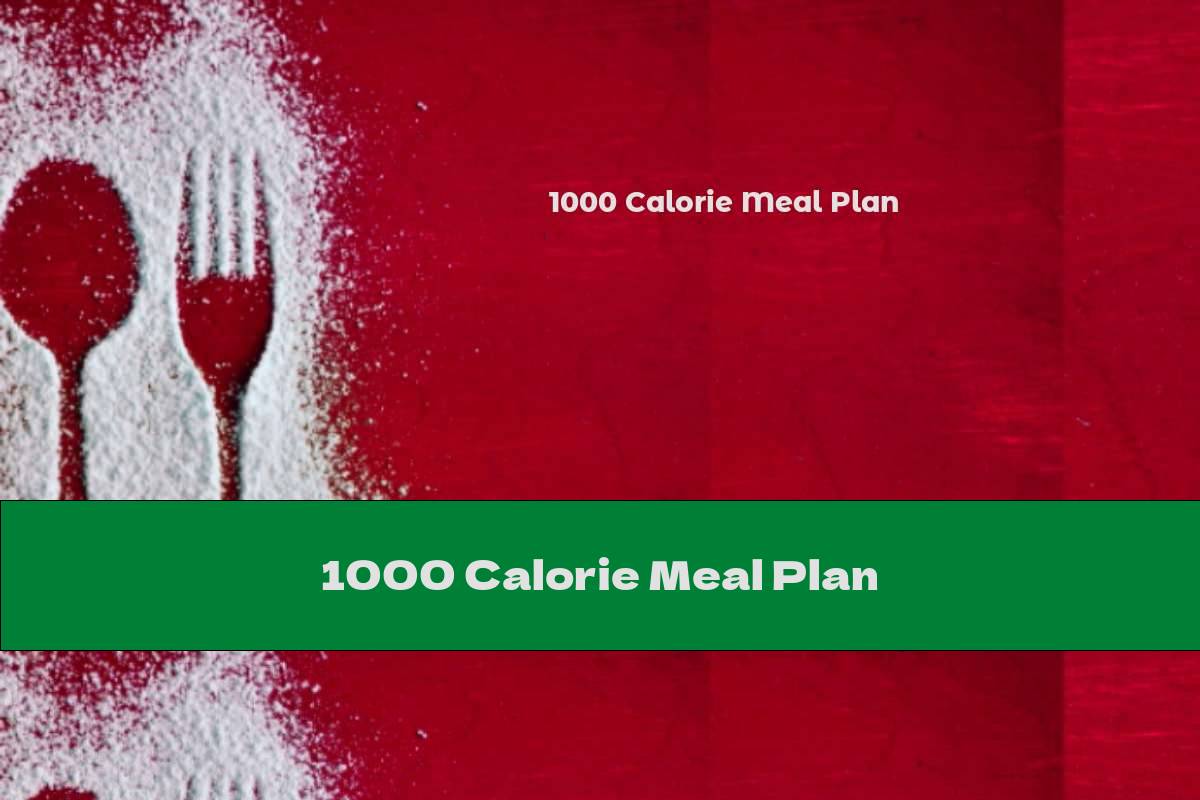1000 Calorie Meal Plan
 Author: Victoria Aly
Time for reading: ~1
minutes
Last Updated:
February 19, 2026
Author: Victoria Aly
Time for reading: ~1
minutes
Last Updated:
February 19, 2026

Learn more information about '1000 calorie meal plan'. In this article we'll discuss '1000 calorie meal plan'.
You'll find that you can live well on 1000 calories per day and lose weight at a good pace.
The 1,000 calorie meal diet is a short-term, slightly extreme diet plan that requires you to slash the calories you're eating and opt for high-protein, low-fat, and calorie foods to keep you full throughout the day.
On the other hand, decreasing your calorie intake too much can be counterproductive. Studies on very low-calorie diets providing less than 1,000 calories per day show they can lead to muscle loss and significantly slow down metabolism (5, 6, 7). Bottom Line: Consuming too many calories can stop you from losing weight.
For example, a person weighing 300 pounds (136 kg) may lose 10 pounds (4.5 kg) after reducing their daily intake by 1,000 calories and increasing physical activity for 2 weeks.
This breakfast
- Onion = 30 c.
- Pepper = 20 c.
- Mushrooms = 20 c.
- Butter = 20 c.
- Egg substitute = 70 c.
- Cheese = 20 c.
- Bread = 81 c.
- Brummel and Brown spread = 20 c.
Lunch
- Vienna Hot Dog = 120 c.
- Poppy seed bun = 110 c.
- Pickle spear = 3 c.
- Tomato slice = 3 c.
- Tbs chopped onion = 3 c.
- Tbs sweet relish = 20 c.
- tsp mustard = 3 c.
Dinner
- 5-ounce sirloin steak = 270 c.
- 5 ounces asparagus = 40 c.
- 1/2 cup mashed potatoes = 120 c.
- 5 sprays, I Can’t Believe It’s Not Butter = 5 c.
Related Articles
- The Nutritional Value of Avocado Calories: Benefits, Diet Tips, and Recipes
- The Ultimate Guide to Avocado Calories: Benefits, Recipes, and More
- The Nutritional Value of Ice Cream: Calories, Vitamins, and Healthy Alternatives
- The Ultimate Guide to Creating a Well-Balanced Diet Plan
- The Nutritional Value of Bud Light: Calories, Alcohol Content, and More
Top Nutrition Articles Today
- . The Latest Food Pyramid: A Guide to Balanced Nutrition
- . Nutrition Guide: Importance of Food Pyramid, Meal Planning,...
- . Libre2 Sensor Reset: Extending the Life of Your Glucose Sens...
- . The Role of Hydrochloric Acid in Digestion: A Comprehensive...
- . List of Foods that Contain Carrageenan: A Guide to Avoiding...
- . The Nutritional Benefits of Quail: A Protein-Rich Superfood
- . Granadilla - Health Benefits
- . All You Need to Know About E471 in Food: Functions, Foods, H...
- . The Truth About Yellow 6 in Nutrition: Health Risks and Regu...
- . The Benefits of Myra E: A Powerful Vitamin E Supplement